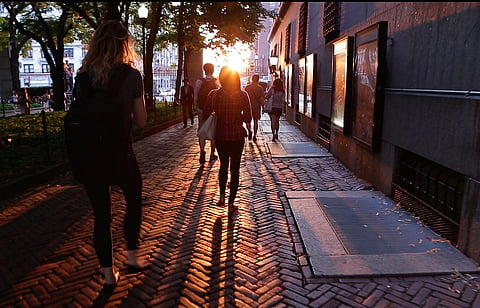

NEW DELHI: A 5 judge bench of the Supreme Court headed by Justice SK Kaul on Tuesday agreed to consider from October 11 question as to whether ex communication of a member from the Dawoodi Bohra community is protected right under Constitution irrespective of enforcement of Maharashtra Protection of People from Social Boycott (Prevention, Prohibition and Redressal) Act of 2016 which repealed Bombay Prevention of ExCommunication Act, 1949 (1949 Act).
The Bombay Prevention of ExCommunication Act, 1949 which prevented religious denominations from ousting a member of the denomination was struck down by a 5 judge bench in 1962 in the Sardar Syedna Taher Saifuddin vs The State of Bombay case. SC’s verdict had upheld the right and power of excommunication bestowed upon the Head Priest of the Dawoodi Bohra Community. Ex communication of a member barred them from entering the relevant places of worship. The act was challenged by the religious head of the Dawoodi Bohra Community on the ground that the right to excommunicate was crucial to his role as the Community’s head.
In the hearing today, Justice SK Kaul the presiding judge of the bench per se asked the parties as to whether the issue had become infructuous in light of the repeal of the 1949 Act.
Senior Advocate Siddharth Bhatnagar argued that though the statutory provisions in the 2016 Act barred ex-communication but now they apply per se. Referring to Sardar Syedna’s judgment, he further said that the practice of ex-communication is protected as per the ruling.
Solicitor General Tushar Mehta argued that although the 1949 Act had been repealed and the lis didn’t survive but the law was still there.
“Ultimately if your lordships fix for someday, I'll persuade your lordships that this needs to be tagged with the Sabarimala issue. Constitutional issues before the constitution bench never become infructuous,” Mehta argued.
For the head of the community, Senior Advocate Fali S Nariman said that although the 2016 Act provided a remedy to all the victims of social boycott, the whole matter had become “moot”.